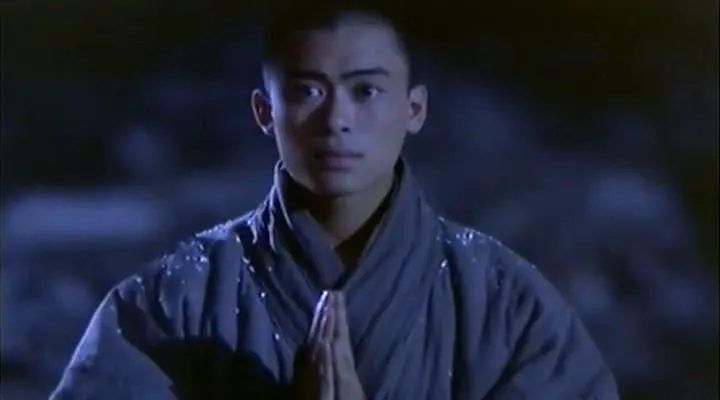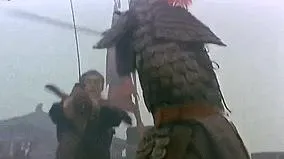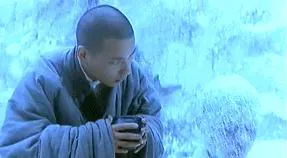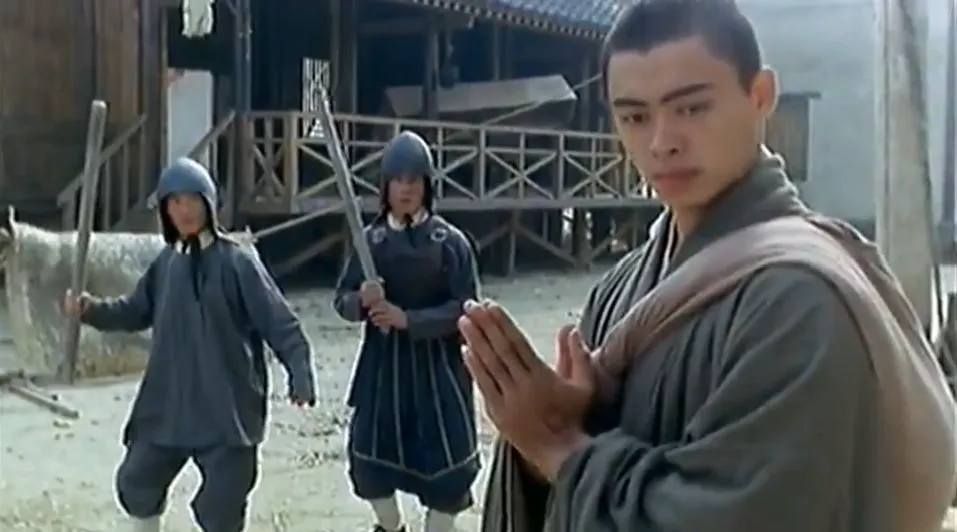Rediscovering a Zen Classic: “The Legend of Bodhidharma”
When the name Louis Fan (樊少皇) comes up, images of iconic roles flood the mind: “Riki-Oh: The Story of Ricky,” Jin Shan Zhao from “Ip Man,” Xu Zhu in “Demi-Gods and Semi-Devils,” Hong Xiguan from “Young Hero Fong Sai Yuk,” Hu Tiehua in “The New Adventures of Chor Lau-heung,” and Zhang Daoling in “The Taoism Master.” However, recently, a lesser-known gem in Fan’s filmography resurfaced in my thoughts.
That film is “The Legend of Bodhidharma,” a meticulously crafted movie centered around Buddhism, adapted from the life of the historical figure Bodhidharma, the founder of Zen Buddhism.
Devoid of flashy special effects, the film shines through its compelling performances, vivid character portrayals, engaging plot, and a harmonious blend of Buddhist philosophy and entertainment, all while carrying profound meaning. It was recognized as one of the top ten films by critics that year, and it has consistently maintained a high score of 8.2 on Douban, accompanied by overwhelmingly positive reviews.
Let’s delve into “The Legend of Bodhidharma” to uncover the story it tells and the behind-the-scenes anecdotes that shaped it.
The Story of Bodhidharma
“The Legend of Bodhidharma” is based on the story of Bodhidharma, the patriarch of Zen Buddhism.
Interestingly, Derek Yee, the current chairman of the Hong Kong Film Awards, played the lead role of Bodhidharma in this film early in his career.
The film, divided into two parts, introduces Bodhidharma’s origins, enlightenment, and apprenticeship in the first half. Bodhidharma is the third prince of Xiangzhi Kingdom in South India and the designated heir to the throne. Before his father’s death, he narrowly escapes an assassination attempt by his elder brother.
Haunted by vengeful spirits due to his past wartime atrocities, the old king invites the Dharma master Prajnatara to perform an exorcism. Prajnatara uses Buddhist teachings to dispel the evil spirits. After the exorcism, the third prince hosts a banquet for the Dharma master on behalf of the king.
During the banquet, the Dharma master expounds on Buddhist principles to the third prince, recognizing his inherent wisdom and suggesting he pursue spiritual practice. However, the third prince believes his royal status makes him unsuitable for such a path. The Dharma master responds with a smile, “Everything is predestined.”
As Prajnatara departs, he leaves behind a verse: “Before I was born, who am I? At the time of my birth, who am I?”
This verse encapsulates the timeless philosophical question: “Who am I?”
The third prince deeply contemplates this verse. To find the answer, he decides to renounce his claim to the throne, enter the monastic life, and follow Prajnatara.
Prajnatara instructs him to build a place for self-cultivation to demonstrate his unwavering commitment to Buddhism. However, through the repeated destruction of the structure, he realizes that Buddhist principles reside within the heart.
Consequently, he is accepted as a disciple by Prajnatara and has his head shaved in a symbolic act: one shave to remove worries, a second to seek Buddhist teachings, and a third to liberate all beings.
Prajnatara then advises him to spread Buddhist teachings in the East 67 years after his death. Bodhidharma diligently practices, adhering to his master’s wishes. After 67 years, Bodhidharma prepares to travel to China to impart Buddhist wisdom and seek out a disciple with exceptional insight to inherit his legacy.
Meanwhile, at the Longfa Temple in China, a monk named Shenguang is plagued by nightmares every night. His destined master-disciple relationship with Bodhidharma is about to unfold.

Shenguang was once a general who slaughtered countless enemies on the battlefield. Burdened by his past sins, he seeks inner peace by entering the monastic life.
Despite the abbot’s guidance, Shenguang’s heart remains restless. Every night, he dreams of leading armies and slaying enemy generals.

Notably, Derek Yee, as Bodhidharma, takes on the role of explaining Buddhist principles, while Louis Fan, as Shenguang, becomes the action star of the film.
Shenguang’s Transformation
Shenguang, burdened by past sins, seeks redemption through monastic life. However, he struggles to find peace, tormented by nightmares of bloodshed on his left hand. To escape these visions, he refuses to sleep, resorting to self-inflicted wounds on his thigh.
Despite his master’s repeated guidance, he remains restless and unable to find peace. He even nearly succumbs to temptation when a rabbit transforms into a beautiful woman, jeopardizing his quest for enlightenment.
Driven by a desire for redemption and enlightenment, he perseveres, kneeling in the freezing snow outside a cave in search of wisdom.

He even severs his arm, the same arm that once shed blood, as an offering in his pursuit of Buddhist teachings.
Shenguang’s sincerity moves Bodhidharma, who accepts him as a disciple and renames him Huike, imparting all his Buddhist knowledge. Ultimately, Huike becomes the Second Patriarch of Zen Buddhism.
Shenguang’s journey demonstrates that wisdom can be attained through learning, practice, and experience.
His devout pursuit of Buddhism is deeply touching. His unwavering heart eventually finds liberation and enlightenment, transforming him into a remarkable figure of wisdom.
It shows that a soul that persistently strives upwards, seeks enlightenment, and pursues the light of wisdom can ultimately receive guidance and achieve its aspirations.

Shenguang once said to Bodhidharma, “Although I strive to seek the Way, I am always filled with unease.” Bodhidharma replied, “You seek the Dharma from me, but why not first reflect upon yourself?”
Shenguang’s story also teaches us that those who truly understand the Great Way are often those who have made mistakes. Making mistakes is not the issue; the key is whether one reflects and introspects after making them.
The Essence of Zen
In the latter part of the film, Bodhidharma, knowing that he is about to pass away, gathers his disciples and asks them to share what they have learned.
The first disciple says: “Words clarify the true essence of Buddhism. One should not be attached to words, but neither should one abandon them, only then can one attain the benefits of the Way.”
Bodhidharma says: “You have only attained my skin.”
The second disciple says: “According to my understanding, it is like Qingxi seeing the Asoka Buddha Land. Once seen, one understands the truth and is enlightened, and there is no need to see it again.”
Bodhidharma says: “You have only attained my flesh.”
The third disciple says: “Earth, fire, water, and wind are all empty. What the eyes see, the ears hear, the nose smells, the tongue tastes, and the body feels are not real. What I see is that there is no Dharma that exists.”
Bodhidharma says: “You have only attained my bones.”
Only Huike, without saying a word, prostrates before Bodhidharma three times with reverence. Bodhidharma says: “That is it. You have finally attained my marrow.”
This illustrates the principle of “Those who know do not speak; those who speak do not know.”
“The Legend of Bodhidharma” excels in its story structure, action sequences, and explanation of Buddhist philosophy.
Yuen Chun-yeung, who was already deeply interested in Buddhist culture, renounced the world and became a monk after making this film.
The film’s high quality has not only maintained its high rating but has also led more and more movie fans to discover this hidden gem.